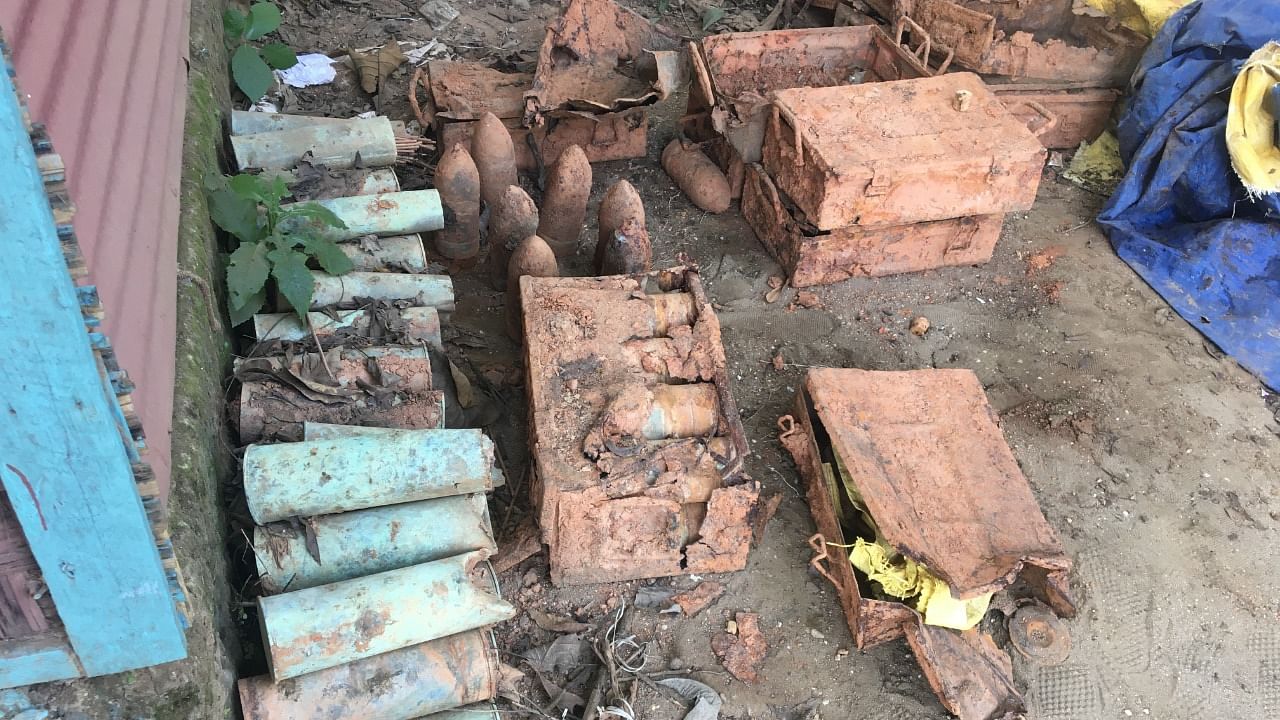
Lalsangmuon Gangte and his brother Lenkhogin were digging a pit behind their courtyard on September 30 at Lhangkhinchoi in Moreh – a border town in Manipur – when a bomb exploded, killing both on the spot. The police investigation that followed revealed that the bomb that one of them hit unknowingly with a spade was an unexploded shell buried by the Allied forces in 1944 during World War II when the Japanese forces had marched into Moreh via present-day Myanmar.
Moreh, situated about 110 kilometres south of Manipur's capital Imphal, is a town bordering Myanmar.
The youngest brother of the victims, Mamang refused to talk to DH about the mishap, but according to Rajeshwor Yumnam, president of World War-II Imphal Campaign Foundation, mishaps like this have happened in the past too, and a threat looms large as unexploded bombs and artillery shells still remain abandoned in the jungles.
"Several children died 15-20 years ago after a bomb went off in a school campus at Toloi village in Ukhrul district. That incident was not reported much by the media probably because it was in an interior area," Yumnam told DH over phone from Imphal.
"Many lost their hands or legs due to explosion of WW-II era bombs while ploughing the field or digging land for construction work. In November last year, 122 unexploded artillery shells were recovered from the same place where the two brothers died on September 30. The shells are still lying near Moreh police station," he said.
Manipur and some other parts of the Northeast witnessed WW-II where the Allied forces and Axis forces clashed in 1944. The Japanese had lost the decisive battle at Imphal and thus their plan to invade India was thwarted. The battle, no doubt, left a trail of destruction killing many on both sides. The remnants of the battle, however, continues to worry many in Manipur.
"Moreh was the biggest weapons depot for the Allied forces and a large quantity of weapons including bombs and artillery shells were buried. Over 20,000 soldiers were evacuated as the Japanese marched fast. But the bombs still remain unexploded and so incidents like this are bound to happen," said Yumnam.
Yumnam's foundation is helping the Japan Association for Recovery and Repatriation of War Casualties to trace the remains of the Japanese soldiers who died during World War II. "Since World War II was not a battle of India, the British government should also initiate a mission to recover the abandoned bombs which still threaten lives in our state. We are planning to write to the United Nations for such a mission," he said.
Check out latest DH videos here